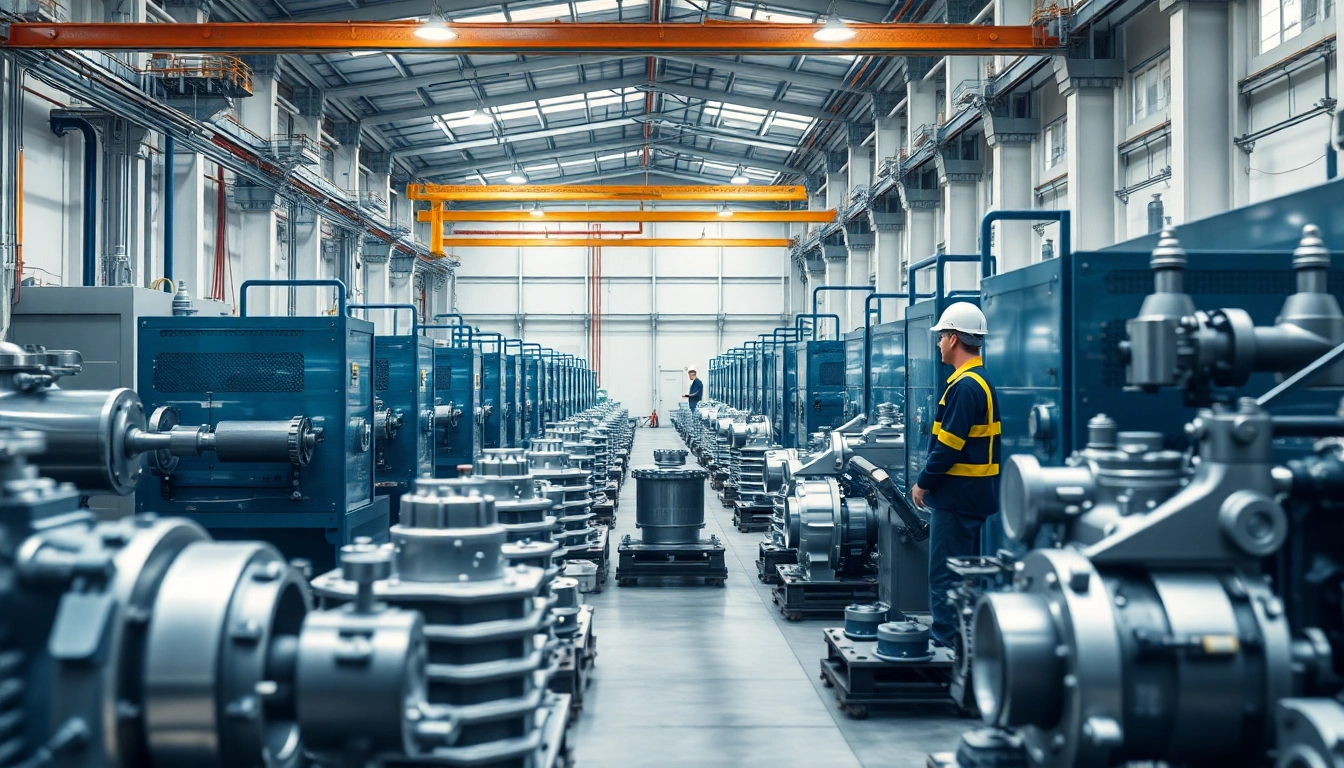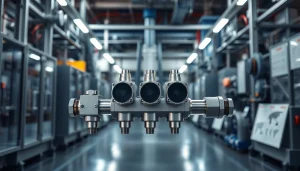Expert Insights on Precision Die Casting Malaysia for 2025

The Fundamentals of Precision Die Casting in Malaysia
In the world of manufacturing, precision die casting stands out as a highly effective method for producing metal parts with intricate designs and superior dimensional accuracy. In Malaysia, this process has gained significant traction, particularly among industries that require high-quality components, such as automotive, electronics, and aerospace. As we delve deeper into the intricacies of precision die casting malaysia, we will explore its definition, advantages, materials used, and the technologies that empower this manufacturing technique.
Understanding Precision Die Casting
Precision die casting is a manufacturing process that involves forcing molten metal into a mold cavity, creating parts with high precision and excellent surface finish. The molds are typically made from high-quality steel or other durable materials, allowing for the production of complex shapes. This method is particularly popular for producing components in large quantities while maintaining uniform quality.
Various metals can be utilized in precision die casting, including aluminum, zinc, magnesium, and copper alloys. Each metal offers distinct properties that suit specific applications. For example, aluminum die casting is favored for its lightweight characteristics and high thermal conductivity, making it ideal for automotive and electronic components.
Key Benefits for Industries
Industries that employ precision die casting enjoy several notable benefits:
- Cost-Effectiveness: The ability to produce high volumes of parts rapidly significantly reduces manufacturing costs.
- High Accuracy: Die casting produces parts with exceptional dimensional consistency, reducing the need for extensive machining.
- Versatility: This method accommodates a vast range of designs, allowing for complex shapes and intricate details that are difficult to achieve through other manufacturing processes.
- Reduced Waste: The process generates minimal waste, making it environmentally sustainable compared to other methods.
Die Casting Materials and Technologies
The choice of materials in precision die casting influences the final product’s performance and application. Aluminum is the most widely used metal due to its lightweight properties, resistance to corrosion, and excellent conductivity. Zinc is another popular choice, especially for parts that require high strength at a low weight.
Advancements in technology have also revolutionized die casting processes. Innovations such as vacuum die casting and die casting of magnesium have enhanced the precision and quality of the components produced. These technologies contribute to the growing efficiency and capabilities of manufacturers in Malaysia.
Exploring the Die Casting Market Landscape
The die casting market in Malaysia is vibrant and rapidly evolving. With a growing demand for precision parts across various sectors, manufacturers are focusing on innovation and quality to stay competitive. Understanding the current trends, emerging technologies, and competitive landscape is crucial for industry stakeholders.
Current Trends in Malaysia’s Die Casting Industry
Several trends define the current state of the die casting industry in Malaysia:
- Increased Automation: Many manufacturers are adopting automation technologies to improve production efficiency and reduce labor costs.
- Focus on Sustainability: Environmental considerations are driving companies to implement sustainable practices, including energy-efficient machinery and recycling scrap metal.
- Customization: There is a growing demand for customized die casting solutions, allowing companies to create parts tailored to specific applications or customer requirements.
Emerging Technologies for 2025
The future of precision die casting in Malaysia hinges on the adoption of innovative technologies. Among these, the following are likely to make a significant impact:
- Additive Manufacturing: Integrating 3D printing with die casting can enhance design flexibility and reduce lead times.
- Advanced Simulation Software: Utilizing simulation tools for mold design can help manufacturers optimize the die casting process and minimize defects.
- Smart Manufacturing: Implementing IoT devices for real-time monitoring will enable manufacturers to track production parameters and enhance quality control.
Competitive Landscape of Die Casting Companies
Malaysia’s die casting industry is home to several leading companies that compete on quality, technology, and customer service. Firms such as HICOM Diecastings and MK Precision Castings are noteworthy for their commitment to precision and innovation. As competition intensifies, companies are increasingly investing in research and development to differentiate themselves from their rivals.
Challenges in Precision Die Casting and How to Overcome Them
Despite the benefits, the precision die casting industry faces several challenges that manufacturers must navigate to remain competitive. Identifying and addressing these challenges is vital for sustainable growth.
Common Misconceptions in Die Casting
Many newcomers to die casting harbor misconceptions about the process. One common belief is that die casting is only suitable for large production runs. However, advancements in technology have made it feasible for manufacturers to produce smaller batches at competitive costs. Understanding these dynamics can help companies make informed decisions.
Addressing Quality Control Issues
Quality control is paramount in die casting, as defects can lead to significant financial losses. Manufacturers must implement stringent quality assurance protocols, including regular inspections and the use of advanced testing technologies to detect issues early in the production process.
Cost Management Strategies for Manufacturers
To remain competitive, manufacturers must adopt effective cost management strategies. This includes optimizing production schedules, reducing waste, and investing in energy-efficient technologies to lower operational costs. Additionally, forging strong relationships with suppliers can lead to better pricing and material availability.
Best Practices for Precision Die Casting Operations
Implementing best practices in die casting operations can enhance productivity, quality, and safety. Here are some strategies that can be adopted:
Streamlining Production Processes
Adopting lean manufacturing principles can significantly streamline production processes. This involves eliminating bottlenecks, minimizing waste, and improving workflow. Techniques such as value stream mapping can help identify areas for improvement.
Implementing Quality Assurance Measures
Quality assurance should be integrated into every stage of the die casting process. Regular training for employees on quality standards and using statistical process control (SPC) tools can help maintain the integrity of production quality.
Employee Training and Safety Protocols
Investing in employee training is essential for optimizing die casting operations. Ensuring that workers are knowledgeable about safety protocols and machine operations not only enhances safety but also increases overall productivity.
The Future of Precision Die Casting: Predictions and Innovations
As we approach 2025, the precision die casting industry is poised for transformative changes. Manufacturers must remain agile and innovative to adapt to an evolving market landscape.
Forecasting Industry Developments for 2025
Experts predict a shift towards more integrated manufacturing solutions, combining die casting with other processes such as machining and assembly to create comprehensive manufacturing workflows. This integration will enable faster turnaround times and improved efficiency.
Sustainability Practices in Die Casting
With increasing environmental concerns, sustainability will play a critical role in the future of die casting. Companies will need to adopt practices such as using recyclable materials, implementing energy-efficient processes, and striving for a circular economy in their operations.
Case Studies of Innovative Companies in Malaysia
Several Malaysian companies are leading the charge in innovation. For instance, HICOM Diecastings has implemented advanced technology in their production lines, enhancing their capabilities and quality. Such initiatives will serve as benchmarks for others in the industry.





